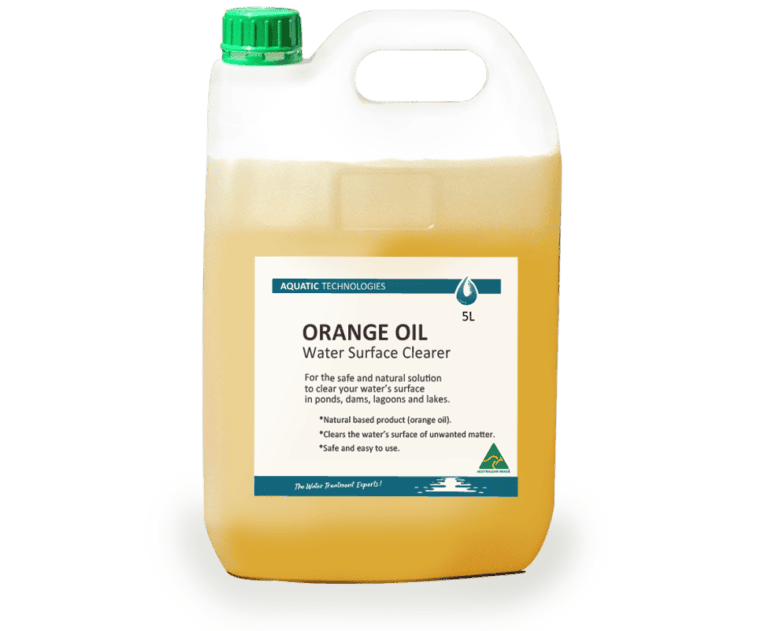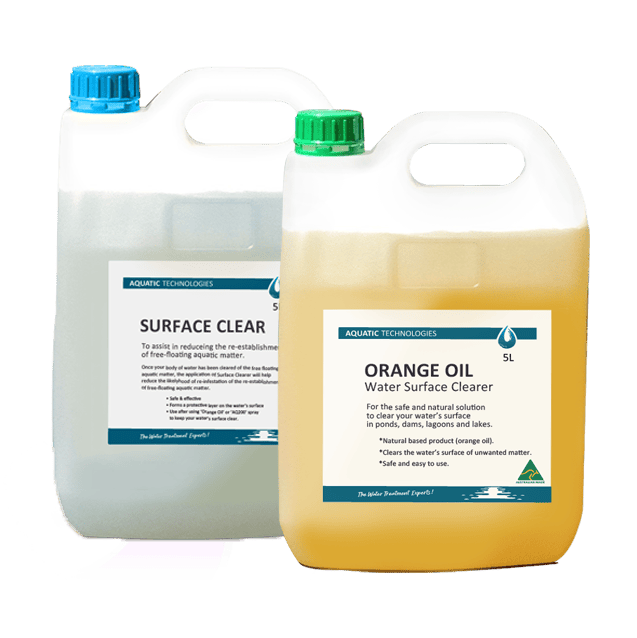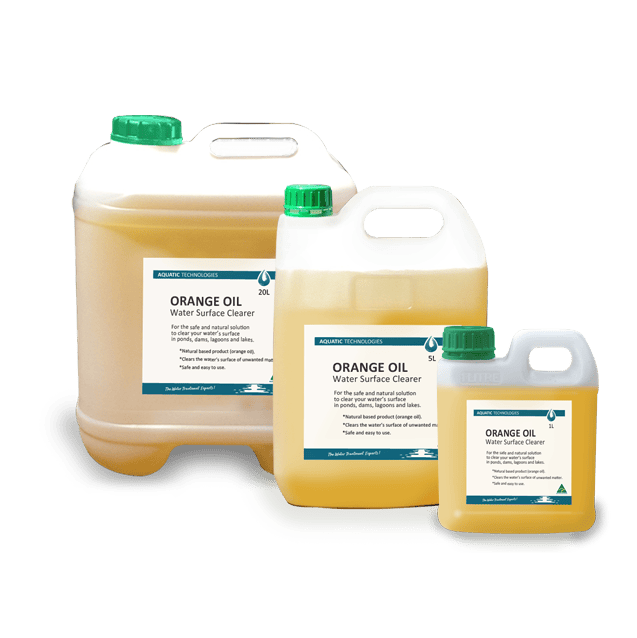


Natural Treatment For Free Floating Aquatic Debris
- Made from Local Oranges
- No harsh chemicals - only oranges
- Effective on free-floating aquatic debris
- Environmentally Friendly[1]
- Safe to use around pets[2] and wildlife
- No withholding period after application
Natural Treatment for Free-Floating Aquatic Debris



Control and Prevention
Orange Oil
Use Orange Oil to treat free-floating aquatic debris
- 1L treats 500m² of surface area
- Apply to light/medium build-up of aquatic debris on water’s surface
- Spray on application
For best results, avoid a single heavy application. Apply several light applications over a 1 to 3 week period [4] [5-6].
Use Together With Surface Clear
Use Surface Clear to assist in keeping free-floating aquatic debris from returning
- Apply 100mL per 100m²
- Helps prevent further growth of free floating aquatic debris
- Shake vigorously and tip in
- Use after Orange Oil Treatment
Silicone-based liquid that helps reduce the re-establishment of new free floating aquatic debris on your water’s surface.
What Does Orange Oil Target?
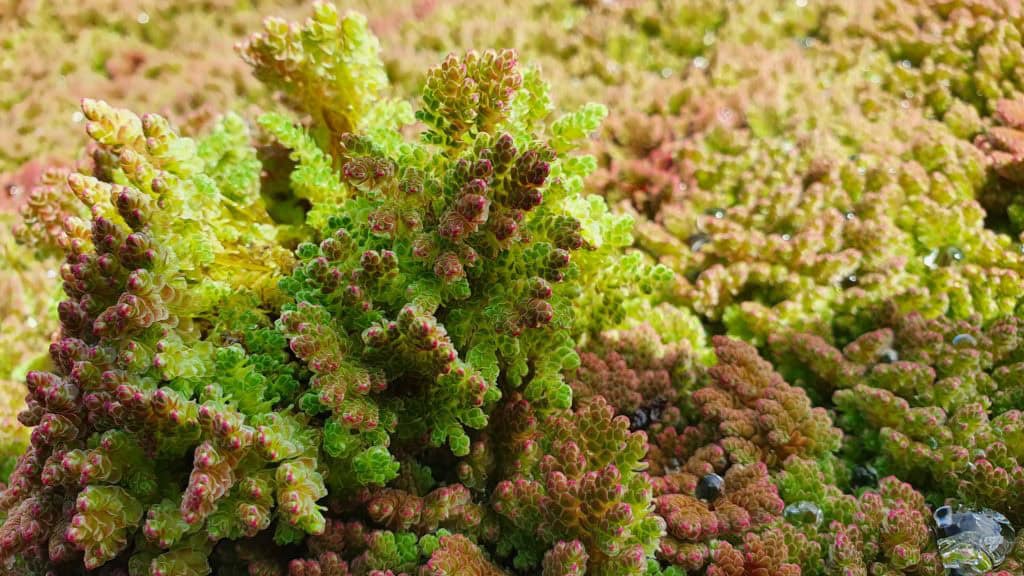
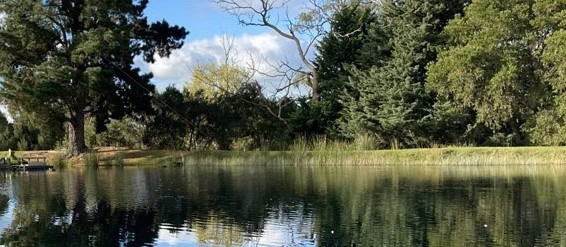
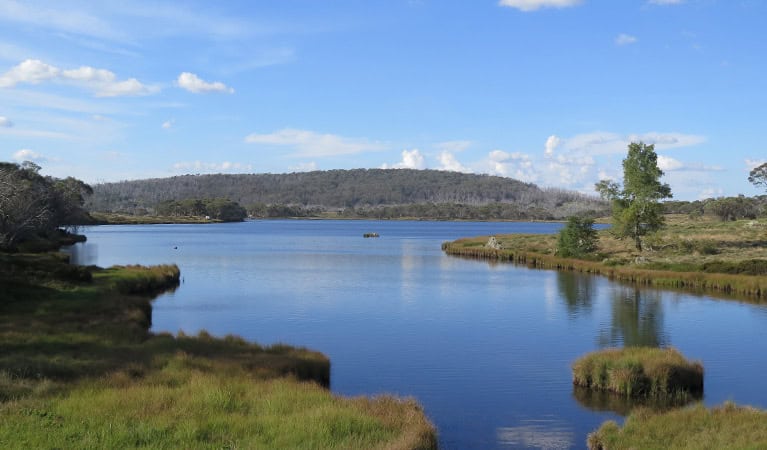
How to get the most out of Orange Oil
Orange Oil is not like traditional herbicides and is best applied by someone with experience in spraying. It is important to apply Orange Oil correctly to achieve desired results.
Firstly, you must make sure Orange Oil is fit for your situation.
- The aquatic debris must be free-floating – not attached to the substrate.
- The density of the aquatic debris must be single layered (not overlapping)
- The water’s surface must not be 100% covered by aquatic debris.
- Your water body must have an average depth of >1m
You can partially remove the aquatic debris by means of physical removal to ensure you meet the parameters above.
We recommend you apply multiple treatments (minimum of 3) to effectively manage free-floating aquatic debris. You should apply Orange Oil directly to the aquatic debris and to the surrounding free space.
Ensure you use a low pressure, shower droplet spray to lightly and evenly coat the surface of the aquatic matter. If the substance moves away from you or from the force of the stream, it is too powerful.
Treatment should continue until the aquatic debris is no longer visible on the surface of your water body.
If applied correctly, we find that full applications on day 1, day 2 and day 4 are quite effective. You may need to spot spray any remaining aquatic debris. If you are not able to apply Orange Oil to all of the aquatic debris in one application, you will need to treat more frequently to ensure all of it is covered over a short period of time.
Friendly to the environment
- Orange Oil is a natural product[2]
- More environmentally friendly than synthetic herbicides[2]
- Does not cause environmental pollution[2]
- Non-persistent which means it decomposes rapidly, preventing the accumulation of compounds in soil and its subsequent influence on non-target organisms[7]
How much do you need for your body of water?
Orange Oil
| Product Size | Coverage (Surface Area) |
|---|---|
| 1L | 500m² |
| 2L (2x1LTwin Pack) | 1,000m² |
| 5L | 2,500m² |
| 20L | 10,000m² |
Sources
[1] M. S. Gomes, M. d. G. Cardoso, M. J. Soares, L. R. Batista, S. M. Machodo , M. Andrade, C. de Azeredo, J. M. Valerio Resende and L. Rodrigues, “Use of Essential Oils of the Genus Citrus as Biocidal Agents,” American Journal of Plant Sciences, vol. 5, pp. 299-305, 2014.|
[2] O. Messerschmidt, J. Jankauskas and F. Smith, “Limonene-containing herbicide compositions, herbicide concentrate formulations and methods for making and using same”. United States of America Patent US 8,273,687 B2, 25 September 2012.
[3] R. Ciriminna, F. Meneguzzo and M. Pagliaro, “Orange Oil,” in Green pesticides handbook : Essential oils for pest control, Taylor Francis Group, 2017, pp. 291-301.
[4] NSW DPI, Salvinia Control Manual, Orange, NSW: NSW Department of Primary Industries, 2006.
[5] Queensland Government, Salvinia, The State of Queensland, Department of Agriculture and Fisheries, 2020.
[6] NSW Government, Salvinia – Smothers Dams and Waterways, New South Wales DPI, 2015.
[7] R. Ribeiro and M. Lima, “Allelopathic effects of orange (Citrus sinensis L.) peel essential oil,” vol. 26, no. 1, pp. 256-259, 2012.
[8] D. Soltys, U. Krasuska, R. Bogatek and A. Gniazdowska, “Allelochemicals as Bioherbicides — Present and Perspectives,” in Herbicides – Current Research and Case Studies in Use, IntechOpen, 2013.


